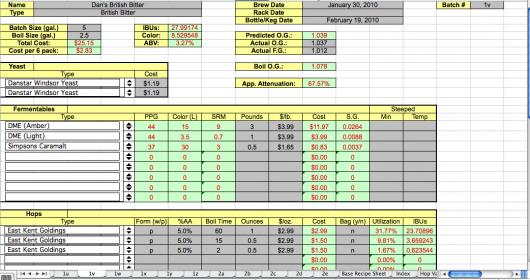Sixstring78
Active Member
I've just started brewing and have been reading into a couple of the brewing programs out there. "Strangebrew" and "Beertools Pro" to be specific.
From someone who is more experienced what would you say? Buy the software to experiment, or wait until I have some more experience under my belt and just follow some recipes for now?
From someone who is more experienced what would you say? Buy the software to experiment, or wait until I have some more experience under my belt and just follow some recipes for now?




